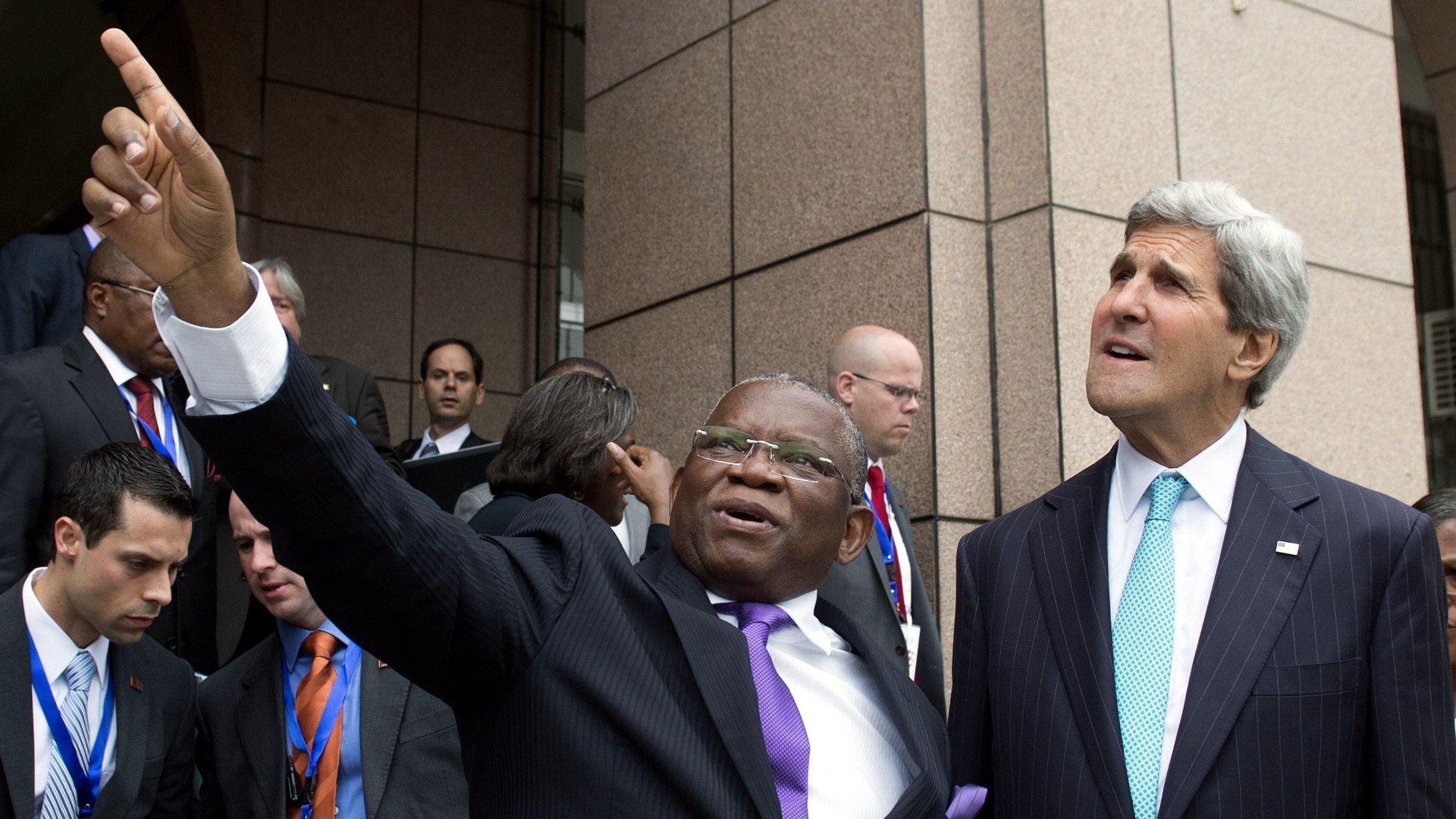The absence of a mysterious research center in Angola could be evidence of oil corruption
There is supposed to be a research center in Angola, funded by foreign oil companies in exchange for access to some of the country’s estimated 9.1 billion barrels of oil reserves. That center is supposed to be training Angolans in the skills they need to work in and profit from extracting the country’s vast natural resources.


There is supposed to be a research center in Angola, funded by foreign oil companies in exchange for access to some of the country’s estimated 9.1 billion barrels of oil reserves. That center is supposed to be training Angolans in the skills they need to work in and profit from extracting the country’s vast natural resources.
But it’s not clear that the center exists, or where the $175 million paid so far to build it wound up.
The cash came from BP and Cobalt, UK and American firms that have partnered with Angola’s state-owned oil company, Sonangol. The situation smacks of corruption, according to Global Witness, the NGO that is calling attention to the project, or lack thereof, in an effort to increase the information that multi-national companies must disclose about their dealings with states.
Angola has been relying on its large oil reserves to recover from a civil war that ended in 2002, but the quasi-authoritarian government of president Jose Eduardo dos Santos has come under criticism for failing to fairly or wisely distribute natural resource revenues. In 2011, some $32 billion in oil revenues was found to be missing by Human Rights Watch and the International Monetary Fund. IMF auditors later found that the “most” of the money was being spent by Sonangol rather than transferred to the government.
It may be the same story here: BP and Cobalt agreed in 2011, as part of an oil concession contract, to pay $350 million for the creation of the Sonangol Research and Technology Center, with the intention of training Angolans in the highly skilled aspects of natural resource extraction. Neither BP nor Cobalt have any knowledge of whether the center was ever built, despite making the first of three installment payments, according to letters the companies sent to Global Witness. Sonangol and Cobalt had not responded to requests for comment by press time.
“Having the right relationship with the state oil company is important to us, but as far as the signature bonus goes, it’s like paying taxes—once you’ve paid your tax, you can’t tell your government what to do with it,” a BP spokesman told Quartz.
Anti-corruption groups have a different take. They are currently fighting to preserve US rules, included in the post-crisis financial regulation overhaul, that require US companies to report the specific payments they make to foreign governments. The first version of the rule, drafted by the Securities and Exchange Commission, was overturned last year in a challenge from oil trade associations. The only reason the Angola payments have been disclosed is that Cobalt was required to do so by the SEC because it is a small company and the contract represents a significant share of its business. Larger oil firms such as BP or the American majors Exxon and Chevron would not publicly share such payments unless the law requires them to do so.
Oil companies say this helps them get business in countries such as Angola, China, Cameroon and Qatar, which prohibit disclosure of payments to their governments. (Update, 8/12: Simon Taylor, a Global Witness spokesperson, notes that there is little evidence the four countries listed actually prohibit legally mandated disclosures; Cameroon is even a participant in EITI, a project dedicated to payment transparency.) But these opaque deals allow governments selling oil concessions to hide payments from their own citizens as well as officials in other countries, fueling the development dilemma that has left so many resource-rich countries deep in poverty.
Cobalt is now under investigation by the SEC for its business practices in Angola, so perhaps there’s more to learn before the next payment of $75 million is due, in January of 2016.